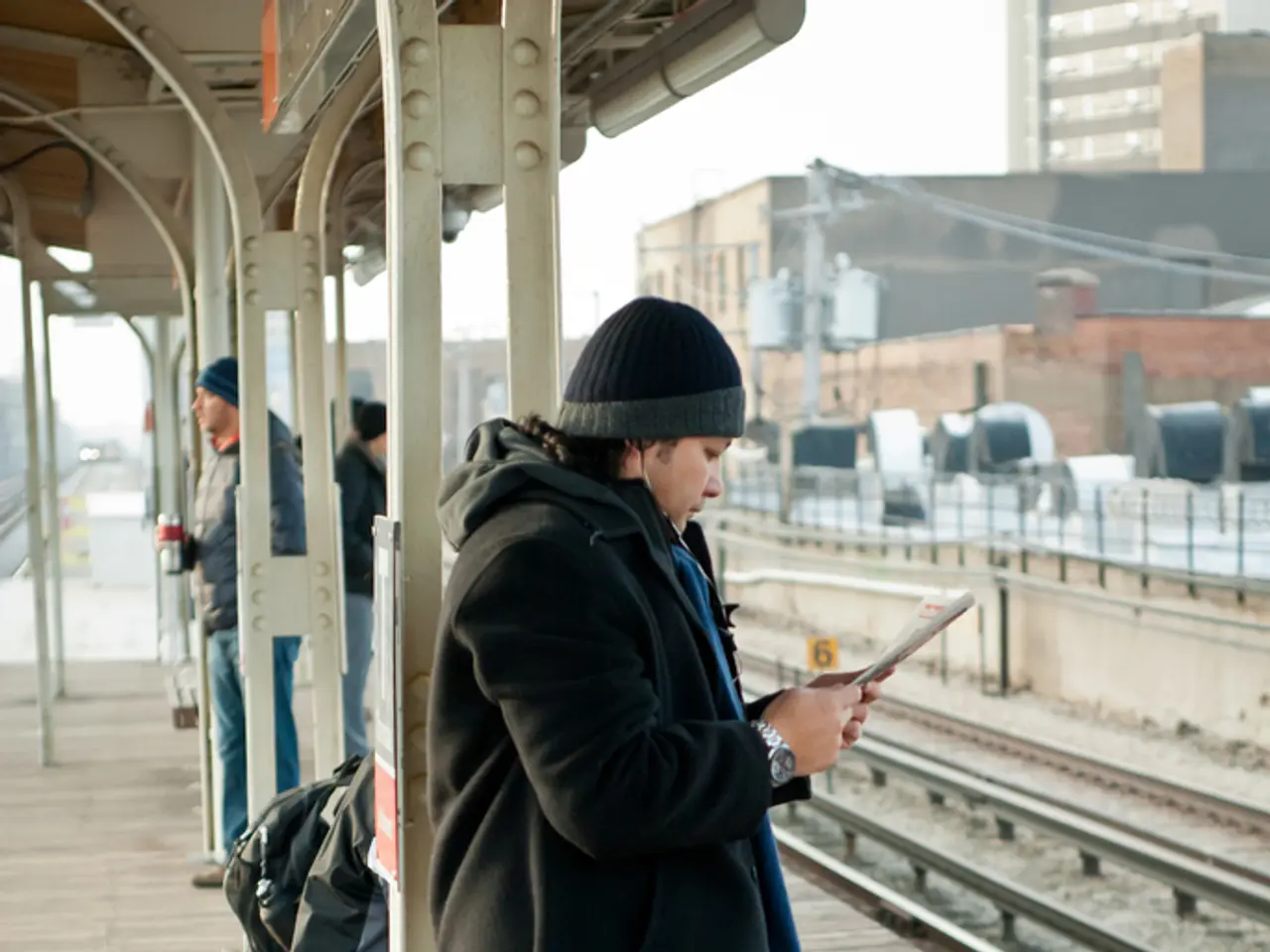Heavy rain causes flooding in Islamabad, prompting the Prime Minister's attention
Islamabad Tackles Flood Crisis with Urgent Measures and Long-term Strategies
Islamabad, Pakistan, is currently grappling with flood-related issues caused by heavy rainfall and urban flooding. The city is responding with urgent measures and long-term strategies focused on disaster response, urban planning, and climate change adaptation.
Current Measures
The Prime Minister, Shehbaz Sharif, has directed the Capital Development Authority (CDA) and district administration to ensure swift drainage of rainwater, launch rescue operations, and protect vulnerable communities near streams and nullahs, especially in low-lying residential areas prone to flooding. Authorities, including health departments, have been put on high alert to prevent waterborne diseases post-flooding. Early warning systems and emergency responses have been activated, advising residents near streams to prepare for evacuation and urging people to vacate unsafe structures.
The National Disaster Management Authority (NDMA) and local agencies coordinate rescue, drainage, and early warning systems to manage urban flood risks in Islamabad and neighboring Rawalpindi.
Long-Term Strategies
The government emphasizes climate-resilient infrastructure development, with the climate change ministry tasked to generate funds to strengthen Pakistan's infrastructure against such events. There is a growing recognition of the need for rigorous land-use planning that discourages construction near watercourses and flood-prone areas to reduce risk exposure. Nature-based solutions, like reforestation and wetland restoration, are recommended for floodwater absorption, reflecting potential strategies for Islamabad to reduce urban flooding impacts.
Post-2022 devastating floods, Pakistan has identified a need for US$152 billion for climate adaptation by 2030, encompassing measures that could include flood-resistant urban design and climate adaptation in housing societies near nullahs. The establishment of special committees to oversee rescue operations and disaster relief indicates institutional strengthening to enhance resilience and response capacity.
Regarding Housing Societies and Construction Near Watercourses
While urgent directives protect vulnerable communities near streams, specific measures restricting or regulating housing society construction near natural watercourses in Islamabad are not explicitly detailed in the available data. However, advisories highlight the risks of building in flood-prone zones and stress evacuation readiness. Urban flooding is exacerbated by inappropriate land use and construction in these sensitive areas, underscoring the importance of stricter planning and enforcement as part of longer-term climate adaptation strategies.
Key Points
- At least 303 people have lost their lives in ongoing monsoon rains across Pakistan, according to the NDMA. The NDMA reported that 104 men, 57 women, and 141 children have died in the monsoon rains.
- 1,678 houses have been damaged in the monsoon rains, and 428 livestock have died due to the monsoon rains.
- The NDMA reported that 278 men, 207 women, and 242 children have been injured in the monsoon rains.
- Floodwaters entered homes, damaged belongings, submerged vehicles, and destroyed standing crops in Kuri village.
- The prime minister ordered the district administration and Capital Development Authority (CDA) to initiate immediate rescue operations and ensure drainage of water. Flooding was triggered by rainwater gushing down from the Margalla Hills, leading to overflow in local streams.
- PPP MNA Shahida Rehmani raised concerns about unchecked construction of housing societies in natural watercourses near the Margalla Hills and Soan River.
- Minister of State for Climate Change Sherry Mansab Ali highlighted the government's efforts to tackle challenges posed by changing climate patterns. Preventive measures are being taken in low-lying areas near rivers and nullahs. Minister of State for Climate Change Sherry Mansab Ali mentioned the government's efforts to conserve floodwater for reuse.
- A special committee has been formed to supervise relief activities and ensure public safety.
- In addition to immediate relief efforts, there's a pressing need for long-term strategies to address flood risks, including preventing unregulated construction near natural watercourses, such as the Margalla Hills and Soan River, as highlighted by PPP MNA Shahida Rehmani.
- To minimize the impact of floods on residential areas, rigorous land-use planning should consider discouraging construction in flood-prone zones and prioritize nature-based solutions like reforestation and wetland restoration as part of strategic infrastructure development.
- The governance body, special committees, and relevant authorities, such as the health departments, should remain vigilant about post-flood health risks, including waterborne diseases, and enhance their capacity for emergency responses and disaster relief to ensure public safety.






